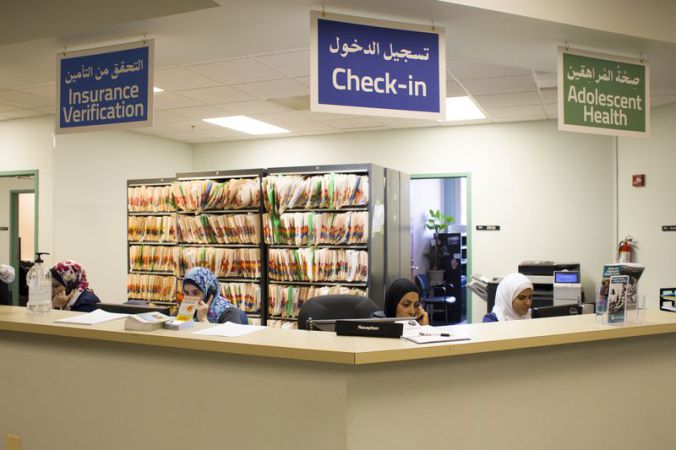Muslim refugees rush to get on ObamaCare
September 19,2017


Rahameed and her family — a husband and three children — did not have health insurance. Refugees get eight months of health coverage when they arrive in the United States but are then left on their own. Rahameed and Amri worked low-wage jobs that didn’t provide coverage. A bill for $981 showed up after they took their young daughter, Leeandra, to the emergency room for the flu. They took out seven credit cards to cover their medical bills.
“Every day I would pray that my kids don’t get sick,” Rahameed said.
She said she only felt completely safe in the United States when she signed up for Obamacare’s Medicaid expansion, around Christmastime last year. It meant that she could get seen for a persistent rash she’d had for years, that her husband could have surgery on a hernia he developed in a job requiring heavy lifting.
Refugees are a population that have quietly benefited from the Affordable Care Act, a group that historically struggled to make sense of the country’s complex, expensive health system — and one that has an immense amount at stake as the Senate continues its debate over Obamacare repeal and replacement Wednesday.
Detroit has unusually robust Obamacare enrollment for an urban area. One explanation for it is that the city has an especially high Arab-American refugee and immigrant population, whose members have signed up for the coverage expansion in droves.
The high enrollment among this groups in many ways represents the exact goals Democratic legislators had in mind when they passed the health care law: expanding coverage to vulnerable, marginalized populations.
But the type of Obamacare enrollment happening in Detroit also represents exactly what many Republicans voters hate about Obamacare: another government handout to a population that some of those voters believe takes more from the country than it gives.
The nonprofit Arab Community Center for Economic and Social Services (ACCESS) holds the Detroit area’s largest Obamacare enrollment grant. It has signed up more than 29,000 people for the coverage expansion, and 90 percent of those enrollments have been within Detroit’s Arab-American community.
“Before the Affordable Care Act, there were a lot of gaps in terms of who was eligible,” says Farah Erzouki, who oversees ACCESS’s Obamacare enrollment work as the organization’s public health manager. “Not only was it unaffordable, but our clients wouldn’t see the necessity. Now they know about the mandate, that America is a place where you carry health insurance, and they’re getting signed up.”
Macomb County, where Rahameed and her family live, is a hub for Iraqi immigrants to the United States. It is a sprawling suburban county just north of downtown Detroit. It is also among the 12 Michigan counties that flipped from voting for Obama in 2012 to supporting Trump in 2016. There are signs of tension from the quick expansion of benefits to the county’s rapidly growing immigrant population.
“I’m standing in the damn welfare office, and I’m looking around at all of these people that can’t even say hello to me in English,” one Trump voter in Macomb County said in a recent focus group. “They’re all there with appointments for their workers, which means they have health care. If you can come from somewhere else, why can’t we all get it?”
Historically, the United States has focused more on screening immigrants for communicable diseases than on treating them. Refugees are given eight months of medical assistance when they arrive in the United States and then are left to fend for themselves.
“By the ninth month, a lot of refugees aren’t that established, and then all of a sudden they lose their coverage,” says Susan Reed, a managing attorney with the Michigan Immigrant Rights Center.
Refugees and immigrants have the same right to enroll in safety net programs as those born in the United States. This means they qualify for Medicaid, which provides health coverage to low-income Americans. Refugees are eligible for those benefits immediately, while immigrants must reside in the country for five years before participating.
CONTACT:
(434) 237-8201
P.O. Box 606
Forest, VA 24551
